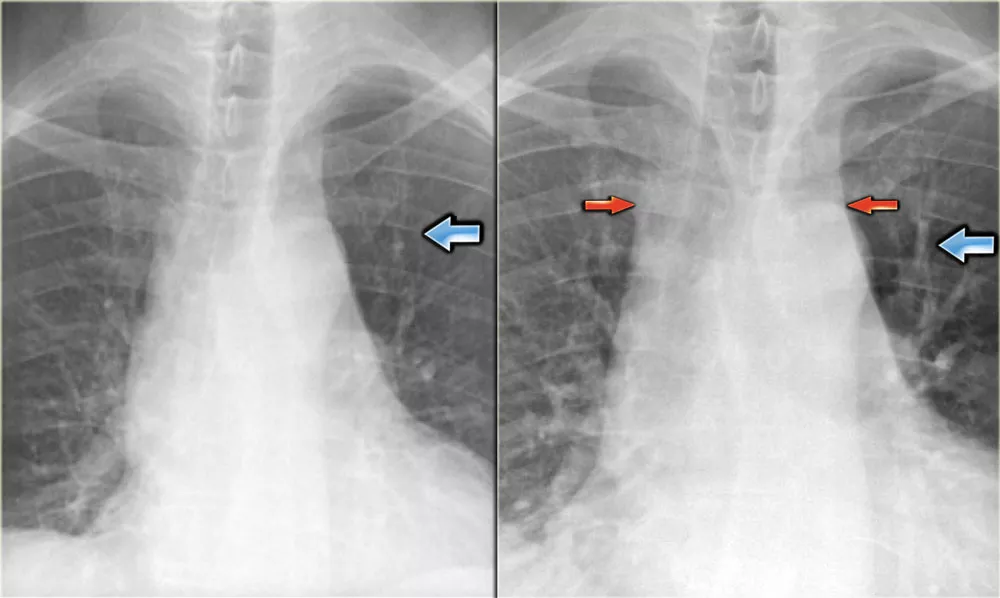Heart failure, also known as congestive heart failure (CHF), is a chronic condition where the heart cannot pump blood effectively to meet the body’s needs. This can lead to a build-up of fluid in the lungs and other parts of the body, causing symptoms such as shortness of breath, fatigue, and swelling in the legs and feet. CHF can have periods of stability interspersed with episodes of worsening symptoms, known as exacerbations. Recognizing the signs of an exacerbation and knowing how to respond is crucial for managing the condition and preventing severe complications.
Recognizing The Signs of CHF Exacerbation
Early Detection is Key
Early detection of CHF exacerbation can significantly improve outcomes. Patients and caregivers should be vigilant for symptoms that may indicate worsening heart failure. Common signs include:
Increased shortness of breath: This may occur during physical activity or even at rest.
Swelling (edema): Notable in the legs, ankles, feet, or abdomen.
Rapid weight gain: A sudden increase in weight can indicate fluid retention.
Fatigue: Extreme tiredness that interferes with daily activities.
Coughing or wheezing: Especially if it produces white or pink blood-tinged mucus.
Decreased appetite: Feeling full quickly or nausea.
Frequent urination at night: Indicative of fluid shifts in the body.
Confusion or difficulty concentrating: Reduced blood flow to the brain can cause cognitive changes.
SEE ALSO: The Six Most Common Types of Heart Failure
What to Do for CHF Exacerbation
Contact a Healthcare Provider
If you or someone you care for experiences signs of CHF exacerbation, it is crucial to contact a healthcare provider immediately. Prompt medical attention can prevent further deterioration and reduce the risk of hospitalization.
Adjust Medication
Under the guidance of a healthcare provider, medication adjustments may be necessary. Diuretics, also known as water pills, can help reduce fluid build-up. Other medications, such as ACE inhibitors, beta-blockers, and aldosterone antagonists, may also need to be modified to better manage symptoms.
Monitor Fluid Intake and Output
Keeping track of daily fluid intake and output can help manage fluid balance. This includes monitoring how much fluid is consumed through drinks and food and how much is expelled through urination. A healthcare provider may recommend a specific fluid restriction to prevent fluid overload.
Limit Salt Intake
Salt (sodium) causes the body to retain water, which can worsen CHF symptoms. Patients should aim to consume less than 2,000 milligrams of sodium per day. Reading food labels, avoiding processed foods, and using herbs and spices for seasoning can help reduce sodium intake.
Weigh Daily
Daily weight monitoring can help detect fluid retention early. Patients should weigh themselves at the same time each day, preferably in the morning after using the bathroom but before eating breakfast. Any sudden weight gain of more than 2-3 pounds in a day or 5 pounds in a week should be reported to a healthcare provider.
Long-term Management Strategies
Follow a Heart-Healthy Diet
A heart-healthy diet is crucial for managing CHF. This includes:
Low-sodium foods: Fresh fruits, vegetables, lean proteins, and whole grains.
Healthy fats: Such as those found in olive oil, nuts, seeds, and fatty fish.
Limited saturated and trans fats: Found in red meat, full-fat dairy products, and fried foods.
Moderation in alcohol intake: Excessive alcohol can weaken the heart muscle and worsen CHF.
Regular Physical Activity
Exercise can improve heart function and overall health. Patients should work with their healthcare provider to develop a safe and effective exercise plan. This often includes activities such as walking, cycling, and light resistance training.
Medication Adherence
Taking medications exactly as prescribed is vital for managing CHF. Patients should understand their medications, including the purpose, dosage, and potential side effects. Setting reminders and using pill organizers can help ensure medications are taken correctly.
Regular Medical Check-ups
Regular visits to a healthcare provider are essential for monitoring the condition and making necessary adjustments to the treatment plan. This may include routine blood tests, imaging studies, and other diagnostic tests to assess heart function and overall health.
Emotional And Psychological Support
Managing Stress
Stress can have a negative impact on heart health. Patients should practice stress-reduction techniques such as deep breathing, meditation, and mindfulness. Engaging in hobbies and activities that bring joy and relaxation can also help manage stress.
Seeking Support
Living with CHF can be challenging, and emotional support is important. Patients should not hesitate to reach out to family, friends, or support groups. Counseling or the rapy may also be beneficial in managing the emotional aspects of the condition.
Advanced Therapies And Interventions
Cardiac Rehabilitation
Cardiac rehabilitation programs offer supervised exercise, education, and support for patients with heart conditions. These programs can help improve physical fitness, reduce symptoms, and enhance the quality of life.
Advanced Medical Therapies
For patients with advanced CHF, additional treatments may be necessary. These can include:
Implantable devices: Such as pacemakers or defibrillators to help regulate heart rhythm.
Ventricular assist devices (VADs): Mechanical pumps that support heart function.
Heart transplant: In severe cases where other treatments are not effective.
Developing an Action Plan
Having a clear action plan in place can help manage CHF exacerbations more effectively. This plan should include:
Emergency contacts: Phone numbers for healthcare providers and emergency services.
Medication adjustments: Guidelines for when and how to adjust medications.
Symptom monitoring: Clear instructions on what symptoms to watch for and how to respond.
Lifestyle modifications: Recommendations for diet, exercise, and other lifestyle changes.
Conclusion
Managing CHF exacerbations requires a proactive and comprehensive approach. Early detection, prompt medical intervention, and adherence to long-term management strategies are key to improving outcomes and quality of life for patients with heart failure. By working closely with healthcare providers and following an individualized care plan, patients can effectively manage their condition and reduce the risk of severe complications.

